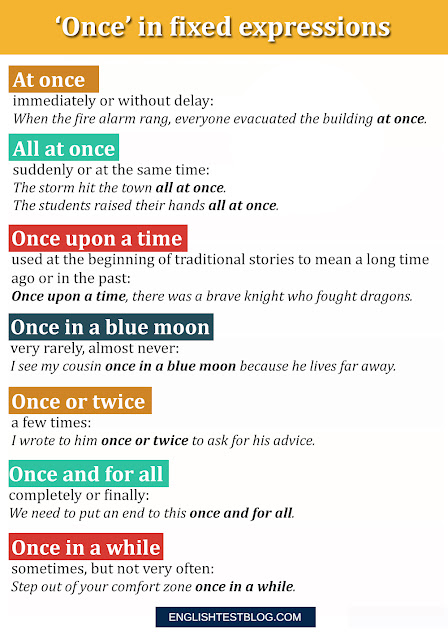The adverb once is a simple word, but it can have different meanings depending on how it's used in an expression. In this lesson, we'll learn some common expressions where 'once' plays a key role.
At once
immediately or without delay:
- When the fire alarm rang, everyone evacuated the building at once.
All at once
suddenly or at the same time:
- The storm hit the town all at once.
- The students raised their hands all at once.
Once upon a time
used at the beginning of traditional stories to mean a long time ago or in the past:
- Once upon a time, there was a brave knight who fought dragons.
Once in a blue moon
very rarely, almost never
- I see my cousin once in a blue moon because he lives far away.
Once in a while
sometimes, but not very often:
- Step out of your comfort zone once in a while.
Once or twice
a few times:
- I wrote to him once or twice to ask for his advice.
Once and for all
completely or finally:
- We need to put an end to this once and for all.

nice
ReplyDelete